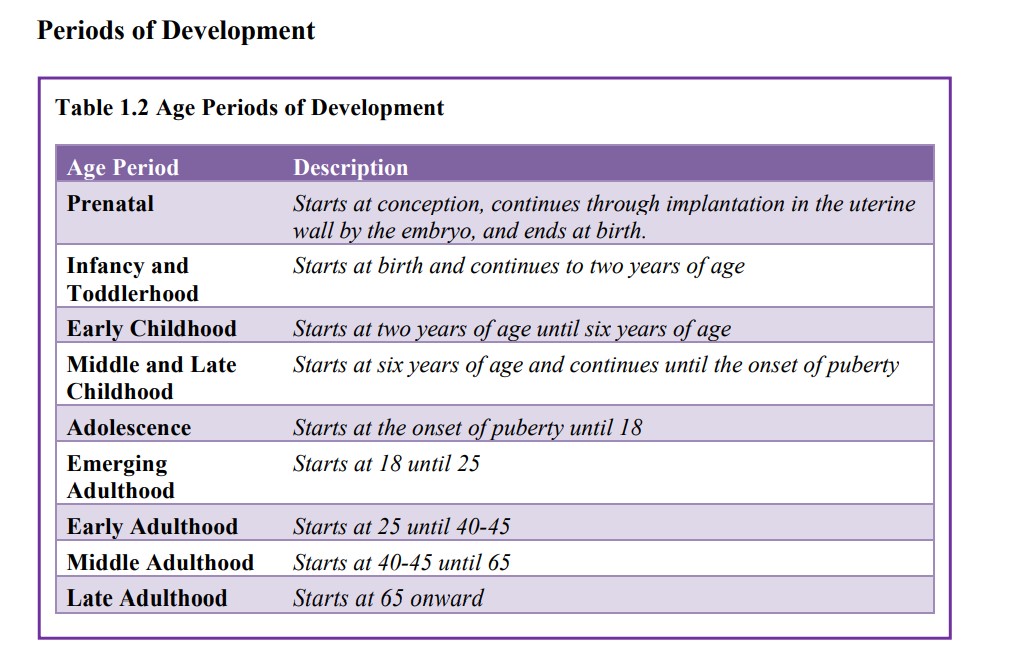Welcome Activities
| Site: | TCOnline |
| Course: | Lifespan Growth & Development (PSYC2314) DUAL CREDIT |
| Book: | Welcome Activities |
| Printed by: | Guest user |
| Date: | Thursday, January 1, 2026, 4:14 PM |
Complete the Digital Access Questionnaire
Please be sure to log in with your TC credentials prior to completing the questionnaire.
Development from Conception to Death in Words
Below are age groups typically found in development. Please recreate this chart in your notebook or print this page. For each, think of words that describe the essence of that time, such as the abilities, developmental needs, interests, or capabilities. It may help to think of a person you know from that age group and note the words that come to mind when considering that person.
|
PERSON |
GROUP Approximate Age Range |
WORDS |
||
|
|
Prenatal |
|
|
|
|
|
Infancy 0-2 years |
|
|
|
|
|
Toddler 2-3 years |
|
|
|
|
|
Early Childhood 4-5 years |
|
|
|
|
|
Middle Childhood 6-10 years |
|
|
|
|
|
Early Adolescence 11-13 years |
|
|
|
|
|
Adolescence 14-18 years |
|
|
|
|
|
Emerging Adulthood 18-25 years |
|
|
|
|
|
Early Adulthood 25-40 years |
|
|
|
|
|
Middle Adulthood 40-65 years |
|
|
|
|
|
Late Adulthood 65+years |
|
|
|
|
|
Death |
|
|
|
Adapted from Rebelsky, F. G. (1981). Life span development. In Benjamin, L. T., Jr. & Lowman, K. D. (Eds.) Activities handbook for the teaching of psychology, Vol. 1 (pp. 131–132). Washington, DC: American Psychological Association.
Periods of Development
Please complete the survey below. Use the chart from your text to assist you (pg. 14).
Read Chapter One for Next Class
Read chapter one and take notes while you read. Be sure to take notes on the key terms as you read. I urge you to use a note taking method while reading. I recommend Cornell Notes or SQ3R the next tab has supplemental resources for the suggested note taking methods. The following chapters provide you with details on each reading method. Please make sure to complete your reading before attempting the quiz for topic one.
How to Use Cornell Notes
How to Use SQ3R
Click on the link https://media.pearsoncmg.com/ph/hss/hss_ciccarelli_psychology_4e/success_center/reading_the_text.html